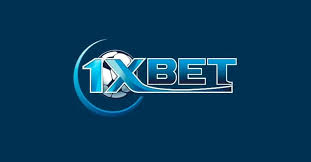
Online sports betting has transformed how fans interact with sports, offering instant access to markets around the world, live in-play wagering, and a wide range of specialized bets. For newcomers and seasoned bettors alike, platforms such as online sports betting 1xbet represent part of a larger ecosystem that connects technology, data, and entertainment. Understanding how these elements work together is essential for making informed decisions and enjoying the experience responsibly.
The fundamentals of betting remain straightforward: you predict an outcome, choose a market, and place a stake. Yet beneath this simplicity lies a rich set of concepts — odds formats, implied probabilities, handicaps, totals, futures, and props — that determine potential returns and risk. Decimal, fractional, and American odds each represent the same idea in different ways; converting odds to implied probability helps bettors compare value across markets and bookmakers.
Betting markets have broadened dramatically. Traditional pre-match bets still dominate, but live (in-play) betting lets you react to the flow of a match, while cash-out features provide options to lock in profits or cut losses before an event concludes. Specialized markets for corners, cards, player props, and micro-events give bettors granular ways to express knowledge about a game, but they also demand specific research and discipline.
Successful bettors focus on value rather than chasing winners. Value occurs when the probability you assign to an event is higher than the probability implied by the bookmaker’s odds. To find value, bettors combine statistical models, form analysis, injury updates, and situational factors like travel schedules or lineup rotations. Smart bettors keep records, analyze results, and adapt strategies based on long-term performance rather than short-term variance.
Bankroll management is the cornerstone of sustainable betting. Set aside an amount you can afford to lose, and divide it into units. Stake a fixed percentage of your bankroll on each bet — many experienced bettors recommend 1–3% per stake — to survive losing streaks and benefit from winning runs. Avoid chasing losses with larger bets, and review your staking method regularly to ensure it matches your risk tolerance and betting goals.
Discipline and emotional control separate hobbyists from professionals. Betting can provoke excitement and frustration; impulsive decisions often lead to poor outcomes. Establish clear rules for when to stop, which markets to avoid, and how to evaluate prospects dispassionately. Use tools like bet tracking spreadsheets, alerts for news and line movements, and pre-defined staking plans to reduce emotional interference.

Choosing the right bookmaker matters. Look for platforms with competitive odds, transparent terms, a variety of markets, secure payment options, and efficient customer support. Licensing and regulation are critical: reputable operators are licensed by recognized authorities and adhere to responsible gambling standards. Compare welcome offers and promotions carefully, considering wagering requirements and withdrawal policies before committing funds.
Technology has reshaped betting. Data analytics, live streaming, and machine learning models provide bettors with more information than ever. Some bettors create their own models to identify edges, while others leverage expert analysis and tipsters. Be cautious with third-party services: vet their track record and beware of guaranteed-win claims. No system can eliminate variance entirely; even well-reasoned bets can lose, so skepticism and critical thinking are essential.
Responsible gambling should be a priority. Set limits for deposits, losses, and session time. Use self-exclusion tools if betting becomes problematic, and seek help from support organizations when necessary. Recognize the signs of addiction: chasing losses, hiding activity, or neglecting personal responsibilities. Healthy betting is about entertainment and measured investment, not a path to quick wealth.
Legal and regulatory landscapes vary by country and sometimes by region. Ensure that you understand local laws regarding online wagering, taxes on winnings, and whether specific operators are authorized to serve customers in your jurisdiction. Betting on unregulated sites carries additional risks, including unfair terms, payment disputes, and lack of recourse in case of disputes.
For bettors interested in improving their edge, education and practice matter. Study probability theory, value identification, and sport-specific metrics. Simulate strategies with small stakes or “paper bet” tracking before scaling up. Join communities to exchange ideas, but verify claims independently. The best bettors remain lifelong learners, adapting to rule changes, market dynamics, and evolving analytics.
In summary, online sports betting offers excitement and opportunity when approached with knowledge, discipline, and responsible behavior. Focus on value, manage your bankroll, choose licensed operators, and prioritize mental well-being. With these principles, betting can remain a rewarding part of sports fandom rather than a source of undue risk.
